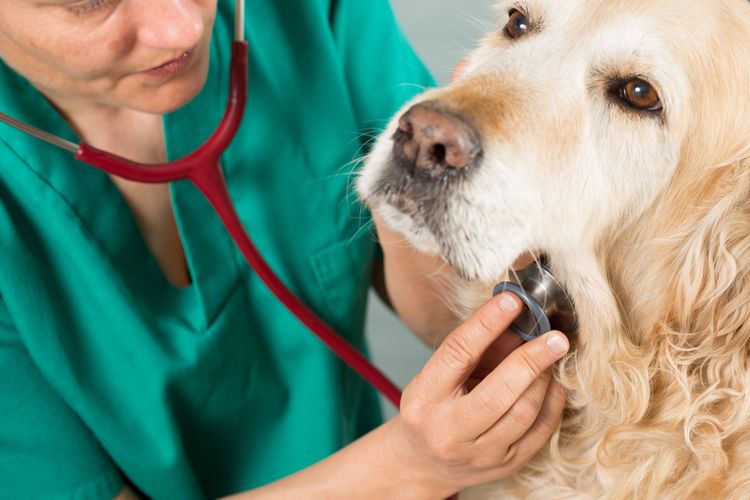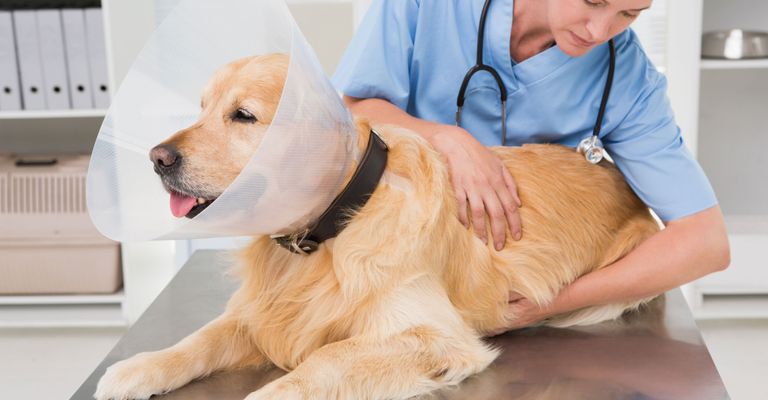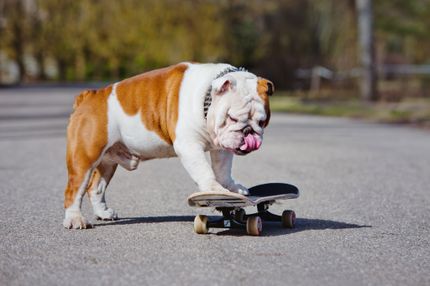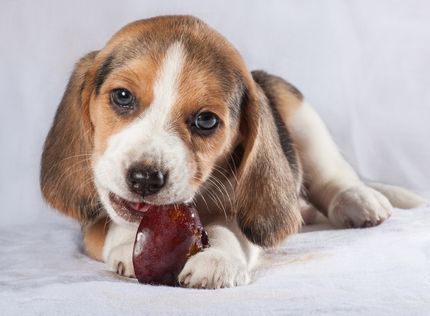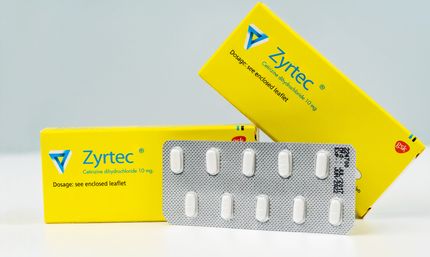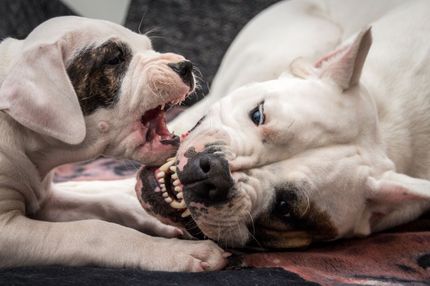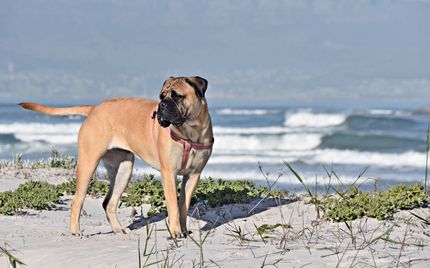Gastritis in dogs - cause, diagnosis and treatment.
If your dog suffers from abdominal pain and vomiting, then it may be that there is a disease of the gastrointestinal tract. One possibility for such a condition is irritation or inflammation of the stomach lining. This is also known as gastritis and can be acute or chronic. In the following article, you will learn more about the causes and symptoms of inflammation, how it is diagnosed and treated, and what you can do yourself to protect your dog from the condition.
Basics and causes of gastritis in dogs
In gastritis, there is damage to the cells of the stomach wall. The cellular damage can progress to the point where ulcers form and break through as the disease progresses, causing bleeding and leakage of stomach contents into the abdominal cavity. Normally, the stomach wall is well protected by the mucosa cells (innermost cell layer of the stomach lining) and an overlying layer of mucus. Harmful substances are kept away from the stomach wall. If this layer is disturbed, the acid ions of the stomach acid can attack the underlying cell layers. Increased gastric acid production also has this effect.
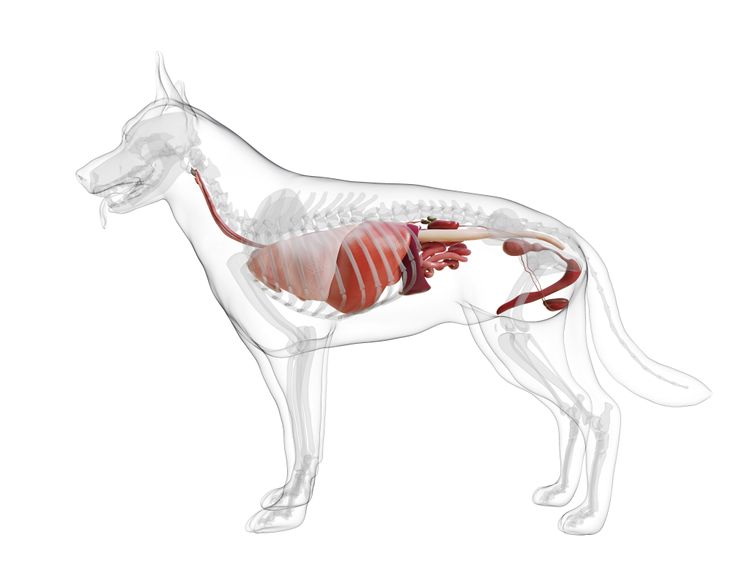
There are many reasons for the destruction of the mucus layer and the mucosa cells and the cause cannot always be identified. Infections with viruses, bacteria, fungi or parasites can play a role as well as the ingestion of medications or incompatible, allergenic or toxic substances. But also stress or certain general diseases can lead secondarily to an inflammation of the gastric mucosa.
The following list gives an overview of possible causes:
- Infections with viruses, bacteria, fungi or parasites
- Ingestion of foreign bodies
- Medication (including NSAIDs, corticosteroids, cytostatics)
- Ingestion of chemicals (e.g. cleaning agents, plant toxins)
- incompatible food(food intolerance or food allergy)
- ingestion of food that is too hot
- eating snow
- general diseases (e.g. kidney, adrenal or liver diseases and mast cell tumours)
- Reflux of small intestine contents and bile acids into the stomach
- Stress
Symptoms and diagnosis of gastritis
Non-specific but common symptoms in dogs with inflammation of the gastric mucosa are abdominal pain and vomiting. Vomiting occurs in isolation or after food or water intake, and the vomit may consist of bilious secretions or food components. If a gastric ulcer is present, traces of blood are often found as well. If your dog's appetite drops significantly or he refuses to eat, this is a sign of discomfort or pain. Heavy salivation can be a sign of nausea. Frequent grass eating or smacking also indicates a stomach issue. If the inflammation of the stomach mucous membranes is based on a general illness, other symptoms sometimes occur, such as fever, weakness or increased drinking.
Since all of the above-mentioned signs also occur with other illnesses, it is not possible to make a diagnosis on the basis of the symptoms. A palpation of the gastrointestinal tract or an X-ray of the abdominal cavity are sometimes helpful. In isolated cases, tumors are palpated or radiopaque foreign bodies such as bone or metal are seen in an x-ray. However, thickened or altered stomach walls, which may indicate inflammation, are better assessed with an abdominal ultrasound. Blood count changes rarely occur, especially in mild gastritis. Nevertheless, your veterinarian will suggest blood work to rule out general illnesses that may be the cause. A definitive diagnosis of gastritis can only be made by endoscopy. Here, the stomach walls can be looked at directly and samples can be taken for histological examination. Foreign bodies can also often be easily removed endoscopically.
Therapy and prevention to prevent gastritis
Acute inflammation should not last longer than one to two weeks. Often food deprivation for 12-24 hours helps. Then you can feed your dog a diet that is gentle on the stomach. Commercial but also home-cooked diets are possible. Well suited are cooked rice, chicken, cottage cheese or low-fat curd. If infections have been identified as the trigger, these must first be combated with antibiotics or antiparasitics. For general illnesses, treatment will depend on the underlying disease. You should identify all the factors that stress your dog and try to stop them so that the inflammation of the stomach lining does not become chronic. Often you will also be given an anti-vomiting or gastro-protective medication to give your dog over a period of time.
